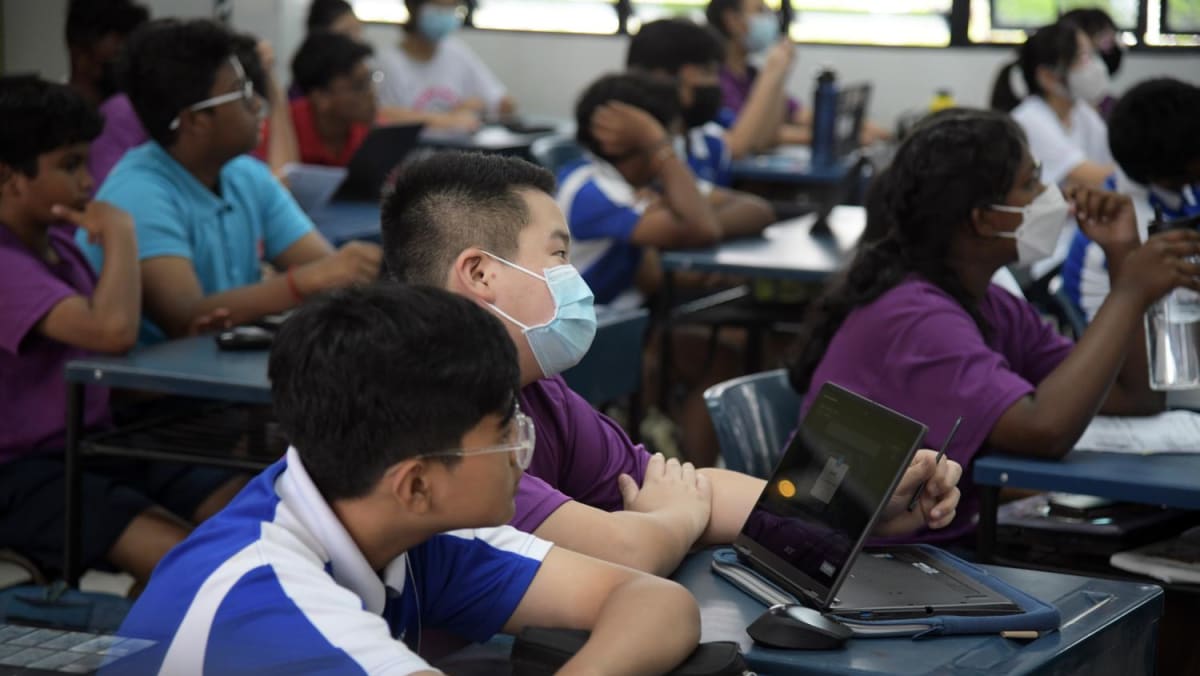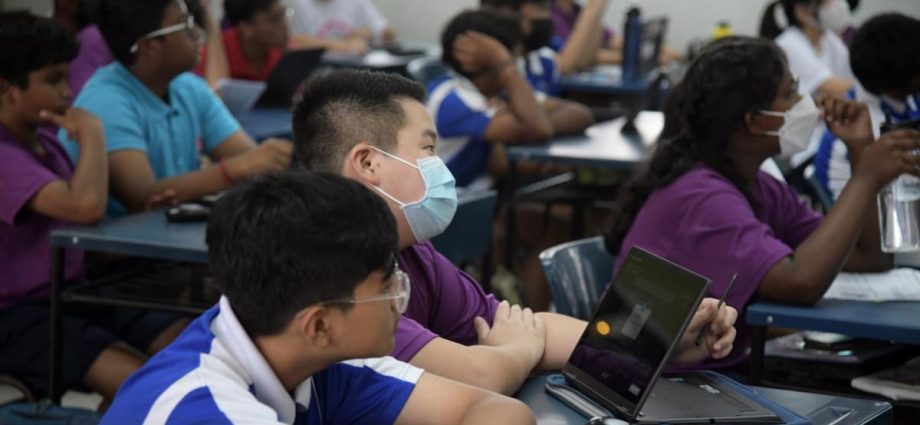
MORE FLEXIBILITY IN EDUCATION
To better support progression, post-secondary and tertiary pathways will provide more flexibility such as allowing students to spread out their learning to pursue side interests or build up a stronger academic foundation, said Mr Chan.
He added that publicly funded university degrees will also have a higher lifetime cohort participation rate, so that more can look forward to obtaining a degree from autonomous universities not necessarily before starting work, but “at some point in their working lives”.
Beyond the classroom, efforts to help Singaporeans stay relevant and competitive will be intensified.
This may include more targeted training support for mid-career workers, top-ups to SkillsFuture credits, and making training more accessible for working adults with competing commitments and responsibilities, said Mr Chan.
He called on industries to do their part, and not passively wait for the “perfect worker” to be developed for them.
“They must be active partners in shaping students’ interests and skillsets even before they enter the workforce,” said Mr Chan. “After that, industries must also be prepared to invest the time and resources to support our workers to upskill continually.
“I can understand the challenges for industries to commit to the training of our workers, especially in uncertain times. But if we don’t grow our own timber collectively, we will all be fighting over a stagnant talent and skills pool.”
REWARDING “HEART” AND “HAND” WORK
During his speech, Mr Chan emphasised the importance of “heart” and “hand” work – referring to blue-collar and community service roles.
Such work, he said, must be fairly rewarded and remunerated, commensurate with the “head” – or intellectual – work, as society needs all of these roles to complement one another to function well.
While this may translate to higher costs for some services – such as essential services – Mr Chan said society must be willing to accept this.
“Otherwise, no matter how much we broaden the dimensions of merit in our school system, none of it will ultimately work because it does not translate into tangible differences in earnings and at the workplace.”
He added that society must also do more to uplift those who are less privileged and also stressed the need to imbue the right values in people from young, so that they grow up to become individuals who are willing to give back to society and create more opportunities for others.
Pointing to efforts such as Singapore’s progressive tax system and educational initiatives to help students from disadvantaged backgrounds, he said these ensure that the gaps in society are not “too stark”.
“We must never degenerate into a system where everyone thinks they deserve more relative to others,” he said.
“The ultimate measure of our success as a society is not how many people we can help because they are unable to keep up; but how few people we need to help because we have enabled them to thrive.”

